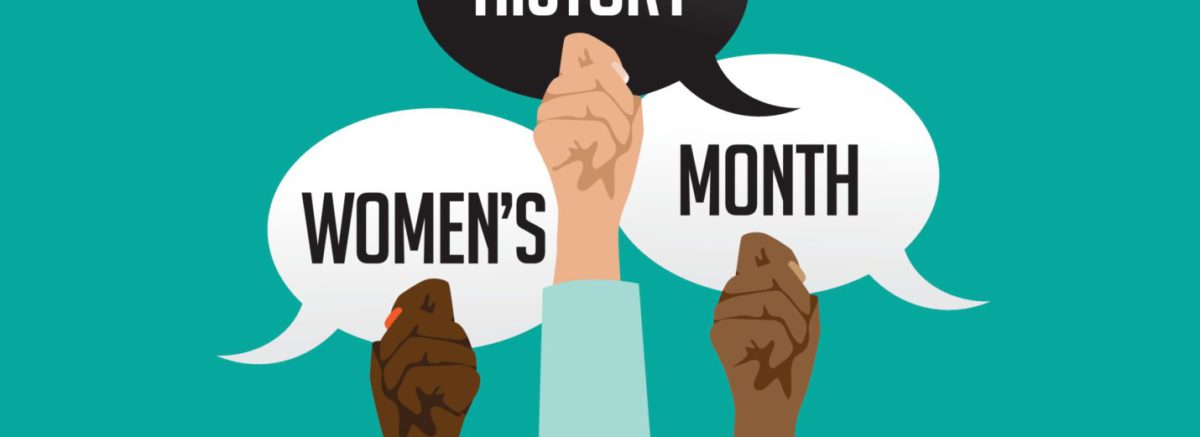Celebrate Women, This Month and Every Month
As I am sure many of you know or have heard, March is Women’s History Month. It’s the month to appreciate, understand, and recognize women who have propelled the human race forward.
Personally, I believe this is all women. Most of whom bear names we will never see running across newspaper headlines. Most of whom we will never see them walking across any stages to accept any awards in recognition for their hard work. We will never be able to trace back the words they wrote, the discoveries they found, or the sacrifices they made.
As Oprah Winfrey recently said in her acceptance speech at the 2018 Golden Globe Awards, “They are domestic workers and farm workers. They are working in factories and restaurants. They are in academia and engineering and medicine and science. They are a part of the world of tech and politics and business. They are athletes in The Olympics and they are soldiers in the military.” They are the mothers who raise us, the sisters who love use the daughters who carry on our legacies, and the friends who sustain us. Women move mountains and make the world turn faster, sung or unsung.
While I could never fully express or cover the myriad contributions our population has made, I thought I might dedicate some time to a blog post that recognizes some of the lesser known female figures that helped shape the world we know.
These women helped shape the world
Sybil Ludington – History remembers Paul Revere’s legendary ride to warn of the British arrival, but he was not the only heroic act of information. Daughter of a New York militia officer and aide to General George Washington, sixteen-year-old Sybil Ludington rode forty miles throughout unfamiliar Putnam County to sound an alarm.
Ada Lovelace – Daughter of the known poet, Lord Byron, Ada Lovelace showed a talent for mathematics at an early age. She went on to translate an article by Charles Babbage and introduce many revolutionary computer concepts. These achievements earned her the title of the first computer programmer in history.
Henrietta Lacks – In 1951, Henrietta Lacks was diagnosed with cervical cancer. Upon close examination of her cell samples at Johns Hopkins Hospital, doctors discovered that her cells were truly unique. Instead of dying, her cells continued to multiply. Lacks died in October 1951, but her legacy is still alive. Known as “HeLa cells”, these cells are used to study toxins, drugs, hormones, and viruses without having to directly experiment on humans. They also played a pivotal role in polio vaccine development.
Amelia Bloomer – Bloomer was a 19th-century feminist and stylist. She got her start by establishing “The Lily”, which was the first publications fully written, edited, and published by women. This paper openly supported suffrage and women’s clothing reform. Bloomer pushed for women to abandon corsets, petticoats, and other tight garments and opt for looser, more comfortable clothing. The loose undergarments known as ‘bloomers’ were coined after her.
Kiranjit Ahluwalia – In 1989, a Punjabi woman living in Great Britain was arrested for burning her husband to death. Initially convicted of murder and sentenced to life in prison, Kiranjit Ahluwalia told the court that her late husband routinely sexually, physically, and psychologically abused her in front of her children. In 1992, Ahluwalia was granted the appeal and was ultimately found guilty of manslaughter due to diminished responsibility. Since she had already served her three-year sentence, she was immediately released. This case brought international attention to domestic violence in non-English speaking families in Europe and the United States.
Dorothy Lawrence – In 1915, this 19-year-old British girl disguised herself as a male soldier in order to be a war reporter. She cut her hair, altered her complexion with shoe polish, and bribed a couple of soldiers to smuggle her a uniform. She remained undercover in the Western Front trenches for a few weeks before revealing herself to her superiors, aware of the risk she posed to herself and others in on the facade. They forbid her from writing about her experience and committed her to a psych ward, where she died in 1964.
Sally Ride – After earning a doctorate degree from Stanford University, Sally Ride applied to the National Aeronautics and Space Administration. The first woman to undergo space training, Ride collected several firsts throughout her career. In 1983, Ride became the first woman to go into space aboard the Challenger, as well as the first to operate the shuttle’s robotic arm. Until her death in 2012, Ride co-founded Sally Ride Science, wrote five children’s books, and taught at Stanford.
Recy Taylor – In 1944, Recy Taylor was a young African American mother walking from the church in Alabama when six white men abducted and raped her. She chose to speak out about what happened, and the NAACP assigned Rosa Parks to the case. There was no trial for the case, nor did they indict the men. However, the ordeal catalyzed the civil rights movement and gained national attention.
Hua Mulan – Recognize the name from a certain Disney movie? The actual Hua Mulan is a legendary female figure in China. She did indeed take her father’s armor and step into his slot in the army. According to the epic poem, she fought for twelve years, earned several military honors, and brought honor to herself as well as her family.
Gloria Allred – Gloria Allred is a women’s rights attorney in the United States. The press frequently associates her name with gender-based issues such as discrimination, sexual assault, and high profile clients. She has represented clients bringing suit against celebrities such as Bill Cosby, Anthony Weiner, Tommy Lee, and Arnold Schwartzenegger, among others.
Conclusion
Obviously, this is a limited list. There are billions of women in the world and every single one has some influence. So be it positive or negative, we have power. We have strength, bravery, character, and intelligence. We move the world forward. Only by understanding our power and potential can we fully encourage progress. Think of the women in your lives, this month and every month. Think of your mothers, sisters, aunts, cousins, godchildren, daughters, friends, classmates, and coworkers. Remember we are neither the weaker nor the lesser sex. Therefore, we are deserving of every opportunity, courtesy, and right, no matter where we live or what we have been through. So keep pushing, and do not forget what we can do.
About The Author

Anneliese Aberg Scalzo is a senior World Literature major at Fairleigh Dickinson University. She hopes to pursue a career as a human rights attorney. Anneliese is immensely passionate about issues involving disadvantaged populations and hopes to utilize her affinity for words to spread awareness. In her downtime, Anneliese enjoys practicing her Swedish language skills, adding to her home library, and relaxing with her dogs.
